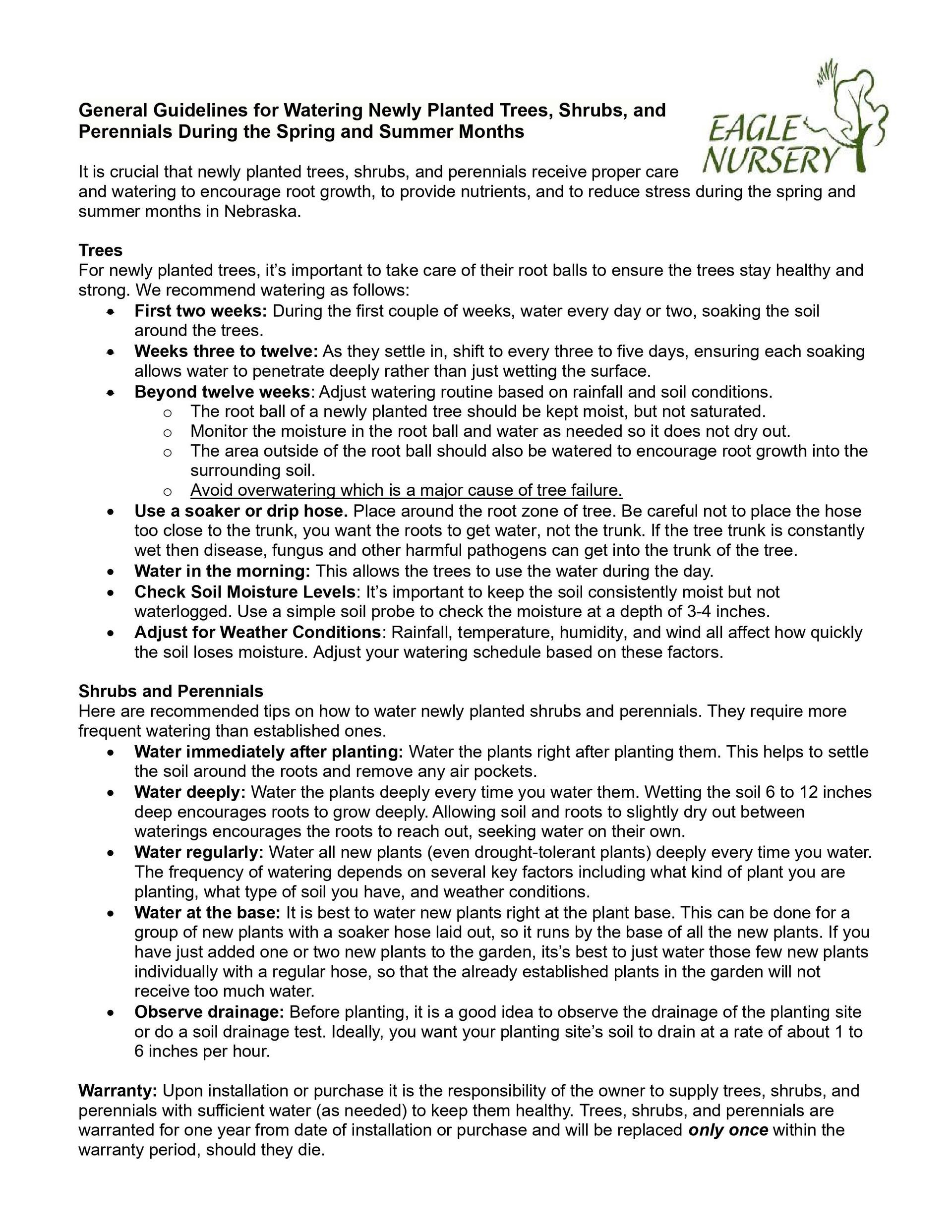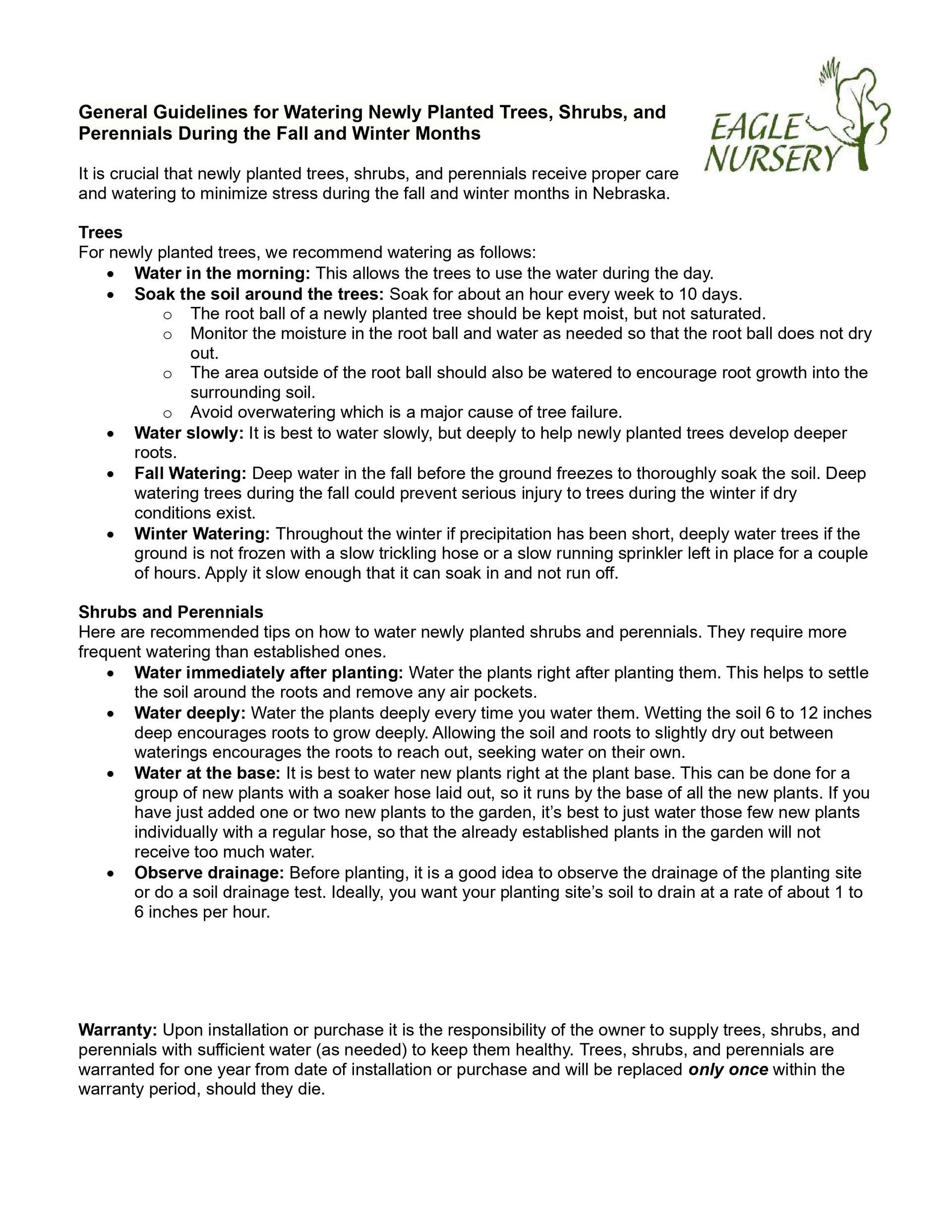910 S 214th St, Eagle, NE 68347
OUR RESOURCES
Expert tips, tricks, and guides to make the most of your next outdoor project.
Frequently Asked Questions About Trees
In the world of trees, there are two main categories that dominate, which are deciduous and coniferous
Frequently Asked Questions
They have broad, paper-like flat leaves that grow during the spring, change to vibrant colors in autumn, and shed at the end of the growing season. Maples, oaks, beech, birch, and alders are common deciduous trees that add diversity and beauty to the landscape.
They have needle-like or scale-like leaves, rather than traditional leaves, and retain them throughout the year. Pines, spruces, firs, junipers, and hemlocks are part of the conifer family that remain green throughout the year and provide a splash of color to otherwise bleak winter landscapes.
The best time to plant or transplant most trees can be in the early spring before it starts leafing out or during their dormant season, typically late fall and early winter, when they have no leaves.
The best time to prune most trees is during their dormant season, which typically falls between late fall and early spring (the winter season) which helps reduce stress and the risk of disease.
It’s possible to overwater a newly planted tree. Every other day watering is good for the first few weeks, but it’s important not to over water, as it can lead to root rot, fungal disease, and poor root development.
Tree roots establish themselves depending on the hardiness zone, the tree species, and local conditions. Nebraska, which falls within USDA hardiness zones 4 and 5, generally takes about one to two years to become well-rooted and established.
In general, softwood trees grow faster than hardwood trees. Most trees will take a few years, if not decades, to reach their maximum height.
Most nurseries use bio-degradable burlap so there’s no need to remove it unless it’s unsightly. We like to cut the burlap off the top once the tree is planted, but trying to remove it from the entire root ball can do more harm than good.
We recommend staking trees, so they do not become bent or uprooted from winds and storms. Additionally, stakes discourage animals such as deer, beaver, rabbits and porcupine from damaging young trees. Leaving stakes on a tree for one year is good, but two years is better.
Adding a layer of mulch will help it conserve water and kill the weeds that compete with a tree for both water and nutrients. Avoid placing the mulch up against the trunk to ward off pests.
FUN FACT
According to the Arbor Day Foundation, an estimated 1 million trees were planted in Nebraska on the first Arbor Day celebration in 1872. National Arbor Day is always celebrated on the last Friday in April, but many states observe Arbor Day on different dates based on the best tree planting times for their area.
Care Guides
Watering Care Guide (Spring & Summer)
Watering Care Guide
(Spring & Summer)
Watering Care Guide (Fall & Winter)
Watering Care Guide
(Fall & Winter)
Request A Quote
Request a Quote
We will get back to you as soon as possible.
Please try again later.
Address
910 South 214th Street, Eagle, NE 68347-3902
Phone
Hours
Open Mon-Fri. 8-5 By appointment only.


